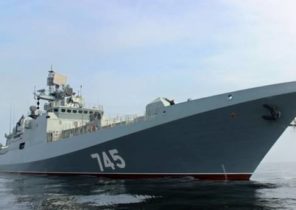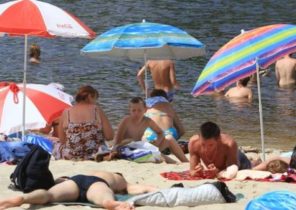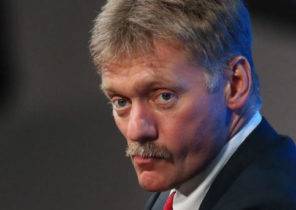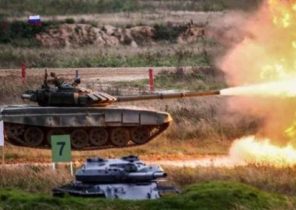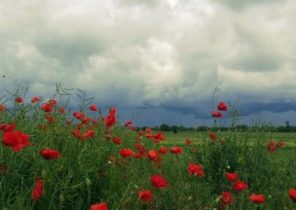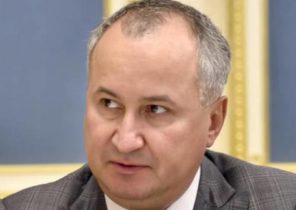— Chairman of the German-Russian forum Matthias Platzeck in the historical-political debate stands on the side of Russian President Vladimir Putin.
Politician of the SPD expresses concern due to the fact that the Soviet role downplayed.
— However, it encourages to build confidence on the part of Russia towards Poland and the Baltic countries.
RND: 75 years ago ended the Second world war. How should one celebrate this day?
Matthias Platzeck: as it in 1985 clearly formulated by Richard von weizsäcker: as the day of liberation from national socialism. And we must never forget that the main burdens of this world war took on the Red Army. I say this because recently in the public opinion there is some change of meaning. It seems like landing in Normandy or the Ardennes assault was decisive moments in the war. The battle for Moscow, battle of Stalingrad, battle of Kursk and the battles in other areas in the East that were crucial to the outcome of world war II.
The war against the Soviet Union, as previously against Poland, was a war of extermination, in which flouted all the rules, but they exist and for wars. The aim of the Germans was simply to destroy the peoples of the East. It must not be forgotten. The fact that these people then offered us forgiveness, reconciliation and even friendship, indeed, an unusual gesture. We need to treat him as before, with sensitivity.
— May 8, 1945 — a mixed day. It led to the release, but the allies came as conquerors, not as liberators. Is it possible to celebrate may 8 as the “Day of liberation”?
— Yes, in East Germany after 1945 for a long time there was no freedom, democracy and self-determination, and it established authoritarian rule. But we should not make the mistake of equating each other Stalinism and national socialism. Hitler created a dictatorship that has no analogues so far, he led a war that nothing to compare it to, he tried to eradicate in an incomparable scale, entire Nations.
— Whether may 8 at the Federal level to become an official holiday, as required by a Holocaust survivor Esther Bejarano and many others?
— I can only support this initiative, still in this day the allied forces had stopped the worst so far, the regime of terror, a danger to many people, and started a new Chapter in world history.
— Today the situation is tense, especially between Poland and Russia. What’s next?
The atmosphere between the East and the West tense. The Chairman of the Munich conference on security Wolfgang Ischinger at the last conference said, “We are facing a pile of shards.” The situation is more explosive than during the cold war. The fact that in this setting such date as the 75th anniversary of the end of the war, accompanied by interpretations and mutual accusations, was expected.
From Russia we hear that the poles are also responsible for the outbreak of the Second world war. Unfortunately, the European Parliament in 2019, the resolution allows for the conclusion that the Soviet Union and Germany guilty about equally. This has little to do with historical facts. However, I can also understand that our Polish neighbors, and the Baltic colleagues, who have doubts, fears and prejudices in relation to the historical context. I understand why they don’t want to talk about the liberation of 1945.
But the fact remains that the Red Army in 1945 liberated Europe from fascism, although not moved in that direction, which we represent to ourselves, that is, in the direction of democracy. I’d like to see the Russian side as a much larger and superior military power neighbor actively worked to build confidence in relation to Poland and the Baltic countries. Unfortunately, it is not the strongest side of Russia.
— How do you evaluate the historical policy of Vladimir Putin in the past months? It is Russia the biggest winner and the main victim of the war.
— In many interpretations of the last months the role of the red Army marginalities, and the role of the Western allies overstated. This, of course, provoked a reaction in Moscow, I understand that. The great Patriotic war, as it is called in Russia, is the defining concept for the Russian Federation. This victory over fascism, this selfless struggle with the countless number of victims — it is entrenched in every family. On this topic in the Russian society creates unity. So you need to be careful with some interpretations. In Russia, this topic is very deep, it comes from within, there was no need to order or specify. It comes from the depths of the souls of Russians.
However, I always prefer a more civil form of honoring the memory and debate. Perhaps more relaxed forms of memory, now, when not held large-scale Victory day Parade, will lead to a new awareness. It would be nice if intense debate had subsided, and, we would come closer to historical truth.
— “Alternative for Germany” may 8 again prioritizes Soviet war crimes and rape. What a response this view still finds in history?
After 1990, we felt that we, especially in East Germany, spoke about things that happened after the liberation, only embarrassment or do not mention some things in the discussions. Were the rapes were acts of revenge, was a special camp, sometimes in the same places as the concentration camps of the Nazis. After 1990 the pendulum has swung in the other direction. It is absolutely normal, as long when you keep the lid closed and allowed to speak only about German-Soviet friendship, not about the pain and crimes. And yet these aspects for the past 30 years was also sufficiently lighted.
In General I have the impression, that there is a risk of confusing cause and effect. Key date — 22 June 1941. Then the Wehrmacht attacked the Soviet Union to wage war on destruction. What happened next was the result of the attack. Many areas of the Soviet Union lay in ruins, millions of people were killed, monuments of culture on an unprecedented scale destroyed or looted. It happened through the fault of the Germans. This should never be forgotten.
